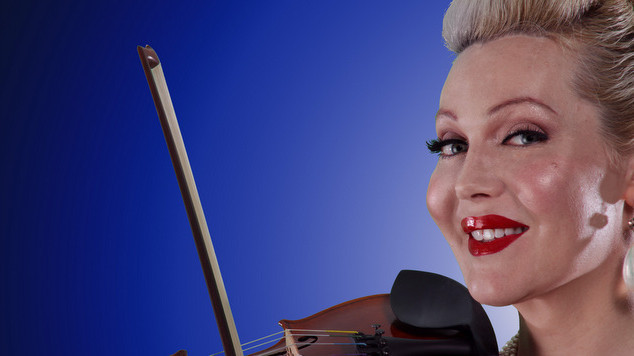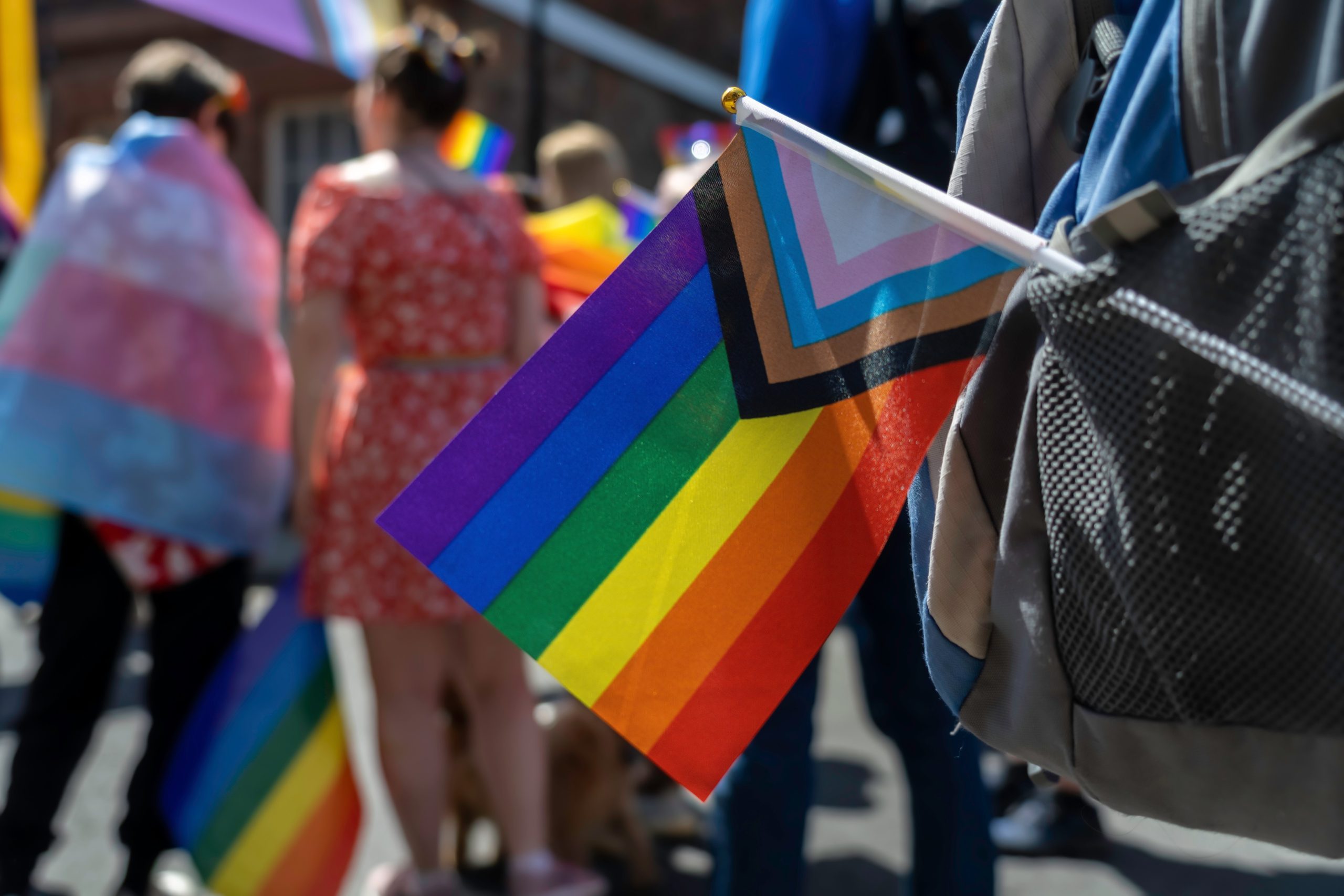
Actress, musician and activist Calpernia Addams has made considerable contributions to the portrayal and visibility of transgender people in mainstream media. A war veteran herself, the 2003 film ‘Soldier’s Girl’ was based on the story of the murder of her army boyfriend by fellow soldiers in 1999. She’s also made a career from entertaining and hosts a popular cabaret night in Hollywood, and has consulted several notable actors on their portrayals of transgender characters, including Felicity Huffman and Jared Leto.
Addams spoke to OUTinPerth ahead of her journey to Australia from her home in Los Angeles.
What are you looking forward to about your trip to Perth?
Basically I’m really excited about coming and learning what the community has been working on there in Australia and I’m also really excited about sharing some of the work we’ve done here, you know, the politics, the entertainment stuff, like the consulting I’ve done with Hollywood stars on trans portrayals in films, I think there’s just a lot of information and ideas we can exchange and plus it’s just going to be a lot of fun.
Will this be your first visit to Australia?
I’ll be my very first visit to Australia and I’ve always wanted to come my whole life so I’m really thrilled to finally get a chance to see it.
You’re doing Sydney Mardi Gras and an event in New South Wales as well, and then Perth so you’re going all over the place.
Yes! Not only am I just getting to come to Sydney Gay and Lesbian Mardi Gras but I’m going to see several other cities as well, so I can’t think of a better introduction to Australia than to get to bounce around and see different communities, different groups of people, but all of them sort of unified in that moment of LGBT visibility and sharing ideas.
Is that what you enjoy about performing at Pride events?
I’m a full time performer anyway so I love singing and acting and performing no matter what, but my heart is always with the LGBT community especially because early in my transition my family cast me out, general straight society was not kind or welcoming because I was visibly trans, but the gay and lesbian community, and the trans community, and the drag community, they were the only people who took me at face value and encouraged me and became my dear friends and supporters so if really feel at home when I’m in and among the LGBT community performing, even though I live my normal life as a heterosexual woman nowadays.
You’ve got so many strings to your bow, what sort of performance should we expect from you at Fair Day?
I plan to bring some of my instruments, my autoharp which is like an Apple Action Corded Dulcimer, and it’s a folk instrument from the mountains where I grew up, and probably my fiddle too, my violin. I’m excited, I’m going to sing some of my original songs and cabaret standards, like the songs of Mae West, Marlene Dietrich and Marilyn Monroe but in a sort of delicate, pretty way, using just the harp and my voice.
Who would you say are your main influences?
My holy trinity has always been Mae West, Marlene Dietrich and Marilyn Monroe. They’re the ‘three Ms’ for me. Mae and Marlene in particular, they were not afraid to be politically active in terms of speaking up for different communities of people. They never ran for office or anything but they were very comfortable speaking up for communities of people and being an entertainer and I take inspiration from that too.
Have activism and performance always gone together for you or was it one after the other?
It’s a strange combination I know. Although there are a lot of Hollywood actors who will take a few breaths out of an acceptance speech to mention an issue du jour and that’s commendable, I’m glad they make that effort but for me, I was originally an entertainer and was drawn in to activism when my boyfriend was murdered in 1999 and I just felt it was my duty to get involved and do what I could. Although my natural talents, I hope, are in the arena of entertainment but I’ve taken that self confidence in that ability to speak on a microphone and put songs together and communicate and turn that towards activism as well.
Do you think that’s changed the way you perform?
I’ve never thought about it that way. My performance has always been a tool to use when I speak on public issues or communicate that way but performance itself hasn’t changed much because of activism. I think some people would prefer that I was a little less bawdy sometimes because they want me to stay respectable [Laughs] But I never want to be fake and I’m a person with a bawdy sense of humour and an irreverent sense of humour and I have to stay true to who I am as a person.
Is there an achievement that you feel especially proud of in your work in the arts?
One of the things that I think has been most important artistic thing I’ve done in my life is the movie ‘Soldier’s Girl’, which tells the story of my romance with my boyfriend and his subsequent murder. And it’s a painful story to tell, and it’s a painful story to see it told over and over but the movie has done so much more to open peoples’ hearts and stir their empathy and stir their interests in these political issues. The movie’s done so much more than I could ever have done alone that although it’s probably one of the most painful things in my life, the movie ‘Soldier’s Girl’ has probably been one of the most important artistic things.
Do you think that that experience has helped paved the way for representation of transgender people in the media?
The media is evolving so rapidly, especially just in the last few years. Over here in the US we’ve had Laverne Cox and the new series Transparent and some other series are really breaking out and my film came out more than a decade ago and Hollywood was so different back then. But I’ve been working hard ever since I moved to Hollywood educating filmmakers and actors, advocating for trans portrayals that are successful. I feel like the work that I’ve been involved with, and it’s certainly not only me who’s doing that but work but that work is paying off now more than ever in the new media that we’re seeing emerge. So it’s all been worth it, although if you look back at some of the old things, some aspects can be a little cringe-worthy.
Do you think that that change in the media is having an effect on peoples’ attitudes and the politics surrounding gender issues?
I do. I think activism needs brilliant minds and political geniuses to go into the courtrooms and the houses of law and the houses of government to make important change there, but some others of us, our talents lie not there but in the arts and the arts also have such a unique power to stir peoples’ empathy and emotion, to open their hearts and minds in a way that legislation can’t touch. So we need the progressive legislation and the activism in the streets but I think we also need the second front of media that humanises trans people much less lesbian and gay and bisexuals, and the media will open hearts in such a special way that I think that’s my big focus nowadays.
I suppose when you look at things from that angle it seems like activism and performance are a very natural couple.
I believe so, I believe activism and performance can go together. One must be cautious not to make your performance into a heavy-handed sermon. I don’t want to get onstage and sing ‘You must accept us now!’ [Laughs] I don’t know. But I think films and television shows that depict trans people as your friends and neighbours and lovers and people who are part of the fabric of your life, it normalizes it and most of the songs that I sing or write, or the projects that I do here in LA, they’re not particularly even about being transsexual, they’re about human things and I think that showing people that a transsexual person feels those same human things they do is another way to humanize.
Do you think the next stage of representation will be, instead of necessarily having stories where the focus is on being transgender, it’s just human stories with a character who happens to be transgender?
I do hope so. I think the media’s depiction of minorities often progresses along a line where in the beginning they’re frightening, sort of outsiders and other, and then they become tragic figures, and eventually they become normalized. And you’ll see in cinema, especially over here, I’m not as familiar with Australian cinema but early trans representation: the trans people were monsters, villains, you know, killers and deceivers. And then the films became tragic narratives and ‘Oh this poor, poor thing. How tragic and weird.’ And now it’s finally becoming narratives of transcendence and success, and eventually it’ll just be normal.
You’ve helped a lot of notable actors to portray transgender people in a realistic way. How have you helped that process along? What do you focus on?
In each case the act is a completely different story and character. A lot of times outsiders will assume that trans people are a monolithic community, that they all have the same issues, and they all have the same beliefs and they’re all doing the same life plan or whatever. But actually there are trans people with an infinite array of possible dreams and desires and circumstances and everything. So I dispel that notion first, that it’s sort of a one-note, monolithic state of being, and then I try to understand what the character is and educate them. Like with Jared Leto and his Oscar-winning performance in ‘Dallas Buyers’ Club’, the character was a poor trans woman living on the streets with HIV in the 1980s. I told him why so many trans people end up on the streets, because they’re rejected by their family and can’t get a job. I told them why HIV was so rampant in the trans community in the 80s’ and I just try to provide that background information and then they, as artists, spin that into a performance.
As a performer yourself, do you get an artistic satisfaction about guiding another artist?
I do, I’ve learned a lot. Watching brilliant actors go through their process has been very educating to me because I know a lot about trans history and trans politics and trans media depictions, but in terms of acting, I’m certainly nowhere near Jared Leto or Felicity Huffman or Lee Pace or Jane Fonda or any of the people I’ve worked with. So I have a lot to work on as well, and I’m grateful that I could assist with those performances.
Calpernia Addams will be appearing at Fair Day on Sunday February 15th
Tickets are available from www.ticketek.com.au
Sophie Joske
Image: Krista Benson






